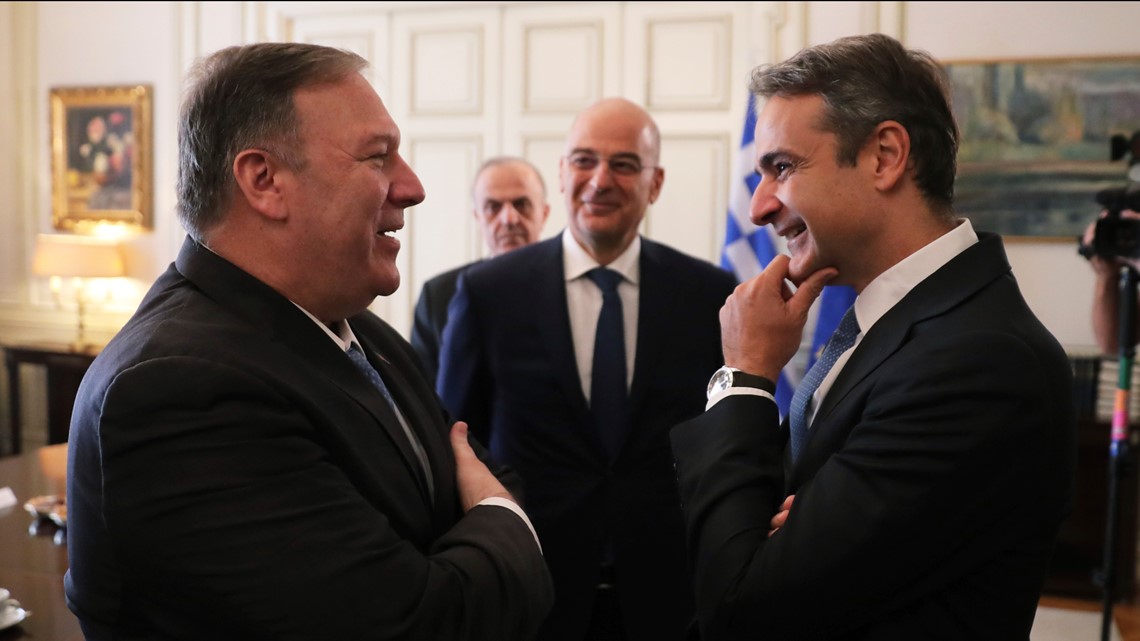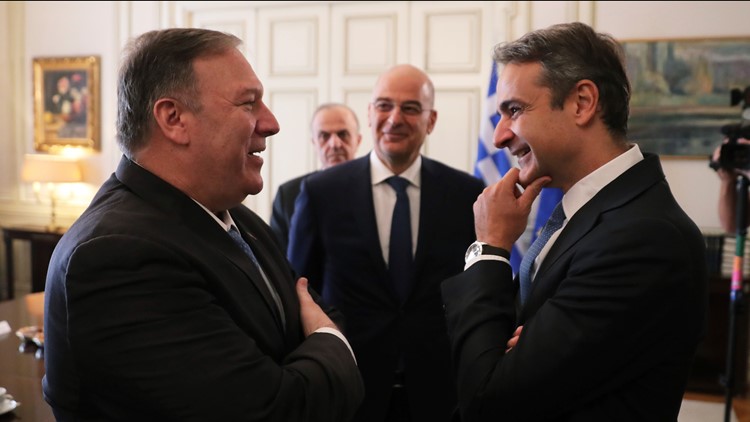ATHENS, Greece — U.S. Secretary of State Mike Pompeo met with Greek officials in Athens Saturday on the last leg of a four-nation European tour that has been overshadowed by the impeachment inquiry in Washington.
Pompeo has sought to avoid drama back home by focusing on matters directly related to his trip, which in Greece center on signing an updated agreement that will allow increased U.S. military activity at Greek bases.
But Pompeo will be hard-pressed to continue ignoring the inquiry that has now embroiled the State Department and raised questions about his possible role in the Trump administration's push to get Ukraine to open a corruption probe into former Vice President Joe Biden's son.
While in Montenegro and North Macedonia on Friday, neither Pompeo nor his staff would answer questions about the administration's efforts. Pompeo had a Friday deadline to respond to a congressional subpoena for documents related to Ukraine, but the State Department declined to say if an answer was sent.
A former senior aide to Pompeo revealed details about the campaign to congressional investigators Thursday and turned over text messages indicating he and another U.S. diplomat played key roles in pressing Ukraine on the matter.
In Athens on Saturday, Pompeo met with Greece's prime minister. He and the foreign minister will sign the revised defense cooperation pact, which U.S. officials described as critical to responding to new security challenges in the eastern Mediterranean Sea.
The deal provides for increasing joint U.S.-Greece and NATO activity at Larissa, Stefanovikio, and Alexandroupoli as well as infrastructure and other improvements at Souda Bay naval base.


"Greece can play an important strategic role here in the region," Pompeo told Prime Minster Kyriakos Mitsotakis. "This is a dynamic region, with lots going on, lots of change taking place, and we are very confident that together, we can work to ensure that Greece can be a pillar for stability in this region."
Mitsotakis referred to recent attempts by Turkey to drill for gas in waters where Cyprus has exclusive economic rights and European energy companies are already licensed to conduct a search. He said the need for the updated agreement was underscored by actions in the Aegean Sea and the eastern Mediterranean that "question the sovereign rights of Greece and Cyprus, violating international law."


